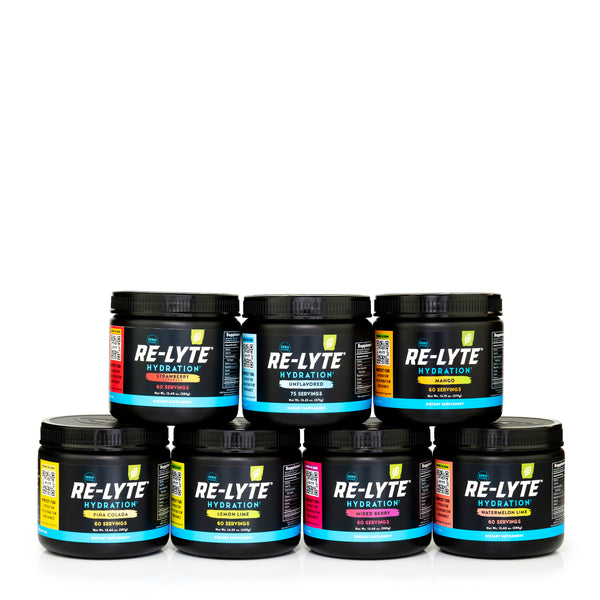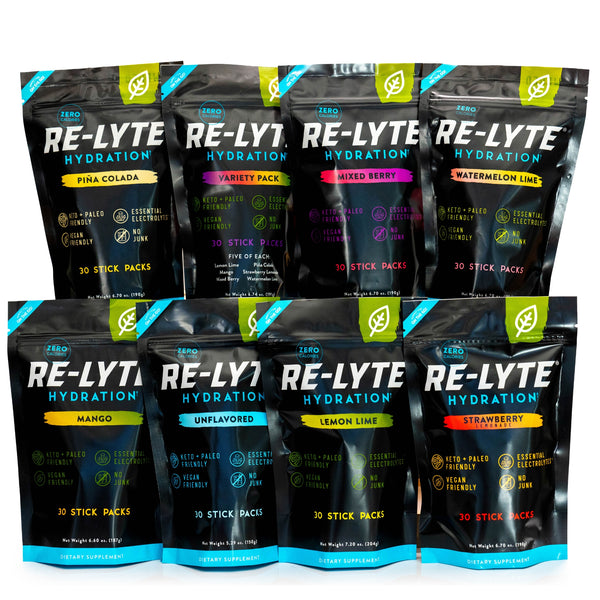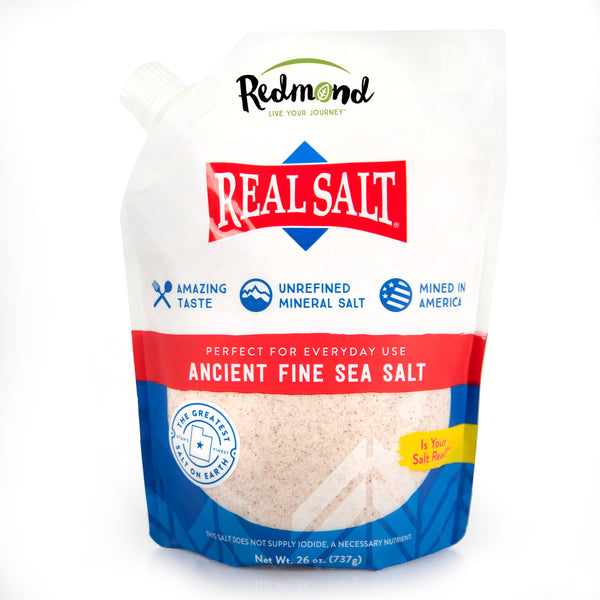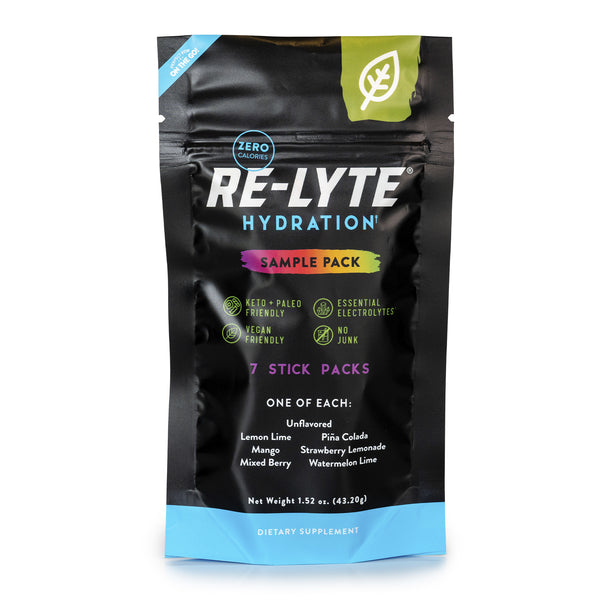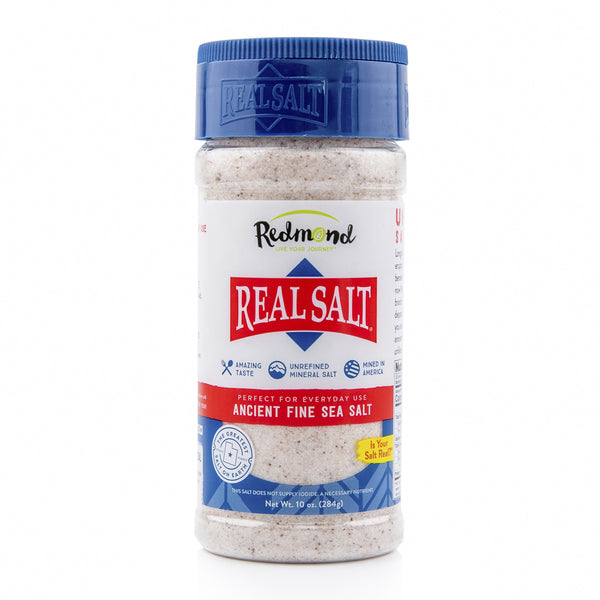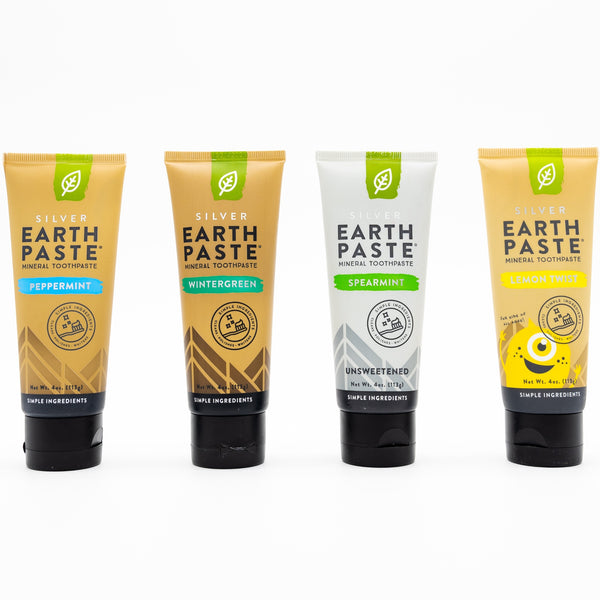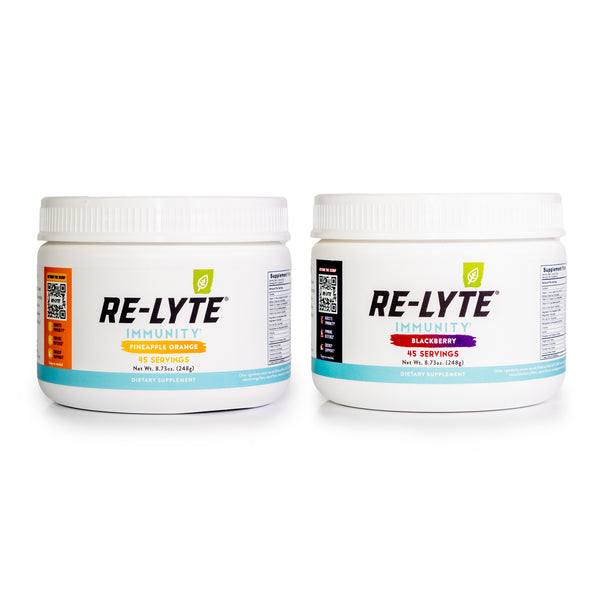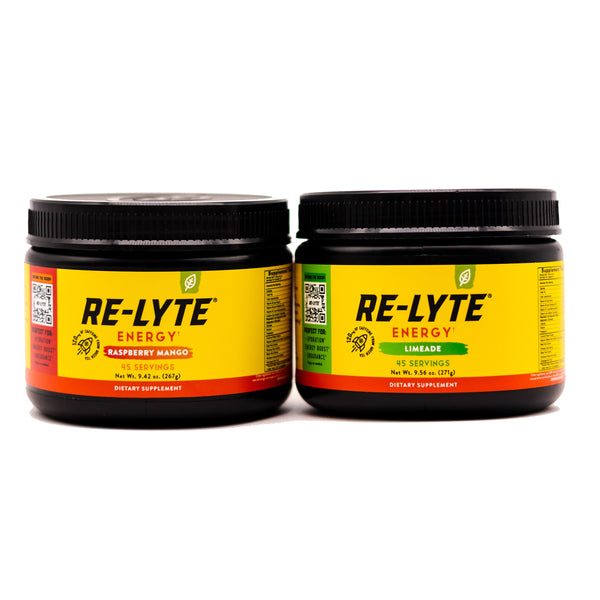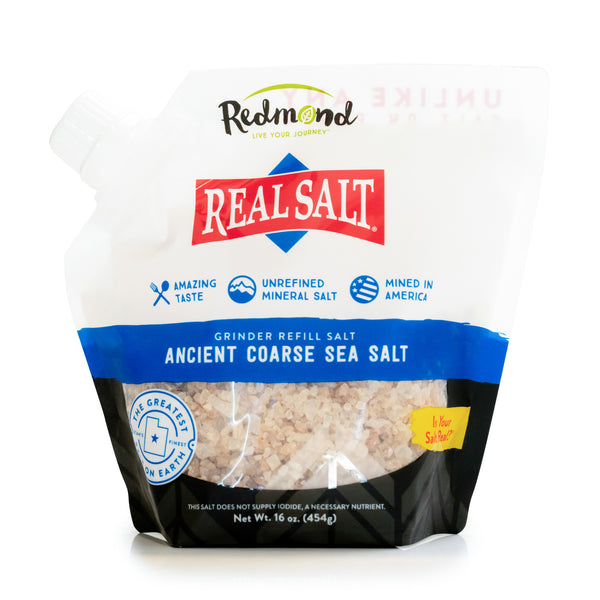Why Am I Dehydrated? The Top 7 Causes

Article at a Glance:
-
Dehydration happens when the body loses more fluid than it takes in, leading to issues ranging from dry mouth to severe conditions like heatstroke.
-
Not drinking enough water, excessive sweating, and illnesses are common causes of dehydration.
-
Certain medications, such as diuretics and laxatives can increase the risk of dehydration.
-
Some diet choices, as well as excessive alcohol and caffeine intake, can lead to hydration challenges.
-
Climate and altitude can significantly increase fluid loss.
-
Taking simple steps, like tracking your water intake and drinking electrolytes, can help keep dehydration at bay.
Why Am I Dehydrated? The Top 7 Causes
Ever feel like you’re running on low battery and just can't seem to shake that sluggish feeling? It could be dehydration! Dehydration is surprisingly common, affecting people of all ages and activity levels. The thing is, many of us don't even realize we're dehydrated until we already feel crummy. Let’s go over the basics of dehydration, how it affects the body, and the top seven causes of dehydration.
What is Dehydration?
Simply put, dehydration occurs when the body loses more fluid than it takes in. This fluid imbalance can lead to problems ranging from mild symptoms like dry mouth and tiredness to more severe conditions like kidney stones and heatstroke.
Water makes up roughly 60% of the human body and plays a key role in digestion, absorption, circulation, and temperature regulation. When you’re dehydrated, your body struggles to perform these critical functions. When you lose fluids, you also lose these important electrolytes. You need to replenish these electrolytes along with water to keep your body’s systems running properly.
Symptoms of dehydration include thirst, dry skin, headache, dizziness, and decreased urine. In extreme cases, dehydration can cause confusion, fast heartbeat, and unconsciousness. (So, drink up before it gets to that point!)
The Top 7 Causes of Dehydration
1. Not Drinking Enough Water
The most basic cause of dehydration is simply not drinking enough water. We’ve all been there—busy days when we forget to take a sip now and then. It’s important to drink water throughout the day, not just when you feel thirsty. Thirst is a late sign of dehydration, so by the time you feel thirsty, your body is already low on fluids. Want help figuring out how much water your body needs? Check out this article and become a hydration expert.
2. Sweating
Sweating is our body’s natural way of cooling down, but excessive sweating can lead to significant fluid loss. This is especially true for those doing intense physical activity or those in high temperatures. Athletes and outdoor workers are especially at risk. Because electrolytes are lost in sweat (that’s why your sweat tastes salty), drinking water alone is not enough. You must also replenish lost electrolytes. We’ve all experienced that awkward moment when a sweat patch appears during a workout or on a hot day—a clear sign that your body is losing fluids fast.
3. Sickness
Vomiting, diarrhea, or fever can cause you to lose fluid fast. When you're sick, your body uses water to fight infection and methods like vomiting and diarrhea to flush out toxins. In addition, a fever increases your body’s temperature, causing you to sweat more. Staying hydrated during times of sickness is crucial, and electrolyte solutions are helpful to bring fluids back into balance. Maybe Grandma was on to something when she made all that chicken soup—a natural source of fluids and electrolytes!
4. Some Medications
Some medications have side effects that can increase the risk of dehydration. Diuretics, commonly prescribed for high blood pressure and heart problems, increase urination. Many chemotherapy treatments result in vomiting and diarrhea. Additionally, laxatives and some antipsychotics can contribute to dehydration. It’s important to check with your doctor and be aware of these side effects so you can take extra steps to stay hydrated when using these medications.
5. Excessive Alcohol and Caffeine
Both alcohol and caffeine are diuretics. While drinking these in moderation might not cause dehydration, binge drinking or excessive amounts of caffeine intake can lead to fluid loss. To prevent dehydration, it’s important to drink plenty of water when consuming alcohol and caffeine. Enjoy your coffee or cocktail, but make sure to hydrate too!
6. Climate and Altitude
As anyone from a hot climate can tell you, living or traveling in hot and humid areas can increase your risk of dehydration. High temperatures cause you to sweat more, leading to greater fluid loss. Additionally, the air is dryer at higher altitudes and in freezing weather, causing you to lose more water through breathing. Staying hydrated in challenging environments means paying closer attention to your body’s signals of thirst and dehydration. Whether you’re in the mountains or in the desert, keep that water bottle handy.
7. Diet
Certain diet choices, like high protein diets, fasting, or diets high in processed foods, can present hydration challenges. These diets can increase your body’s need for water, whether it’s for processing proteins, managing the effects of reduced food intake, or digesting sugary foods. Being extra mindful of your hydration needs and/or including plenty of water-rich fruits and vegetables can help you stay hydrated.
Simple Steps to Avoid Dehydration
Avoid dehydration by taking these simple steps:
- Drink water regularly. Drink more if you’re active or in a hot environment.
- Consider an electrolyte drink like Re-Lyte Hydration to replace essential electrolytes that are lost through sweat or sickness.

- Keep track of how much you’re drinking. Filling a container at regular times can help with this.
- Eat water-rich foods like fruits and veggies. Cucumbers, oranges, and watermelon are great options.
- Limit alcohol and caffeine. Balance these with water to avoid their dehydrating effects.
- Stay cool. Find shade, wear a hat, and take breaks to reduce sweating.
Ditch the Dehydration Drama
By understanding the culprits that zap your hydration and taking simple steps like reaching for that water bottle (and a hydrating beverage like Re-Lyte Hydration), you can keep your body functioning at its peak. Remember, staying hydrated isn't just about chugging water all day (though that does help!). It's about being mindful of your body's needs and keeping those essential fluids and electrolytes flowing. So stay ahead of dehydration and keep thriving–one refreshing sip at a time!
Want a deeper dive? Check out these articles from Redmond Life.
Why Should You Drink Electrolytes?
How Much Water Do You Really Need?
4 Hydration Mistakes Even Health Nuts Make
Sources:
- Dehydration - Mayo Clinic
- What Medicines Can Cause Dehydration? - WebMD
- Dehydrating drinks: Caffeine, sugar, and other ingredients - Medical News Today
- 5 Diets That May Contribute to Dehydration - Everyday Health
Comments (2)

Living in SE New Mexico in summer has it’s challenges with morning walks even 8 AM. For hydration I like to add to my filtered water a bit of Redmond salt with lemon. Seems to work for me at 70 years old. Thanks for thr info ….
———
Redmond Life replied:
Thanks for sharing your routine, Steve. Adding Real Salt and lemon sounds like a refreshing and mineral-rich way to stay hydrated during those hot New Mexico mornings!

Excellent information!
———
Redmond Life replied:
Thanks for your comment Betty! We love to help people to have good health and hydration!




